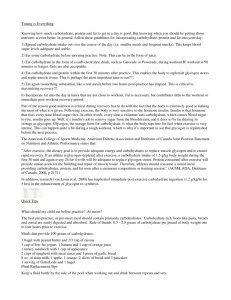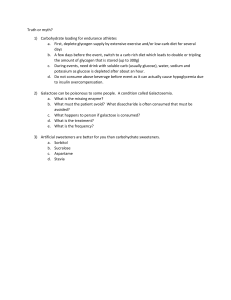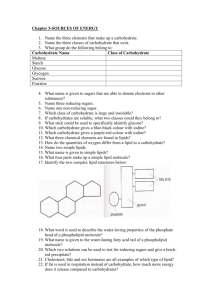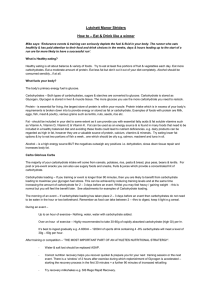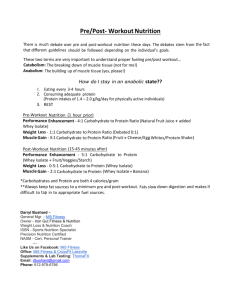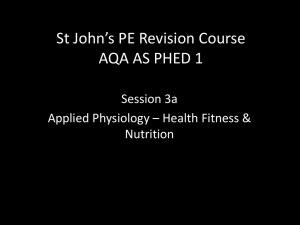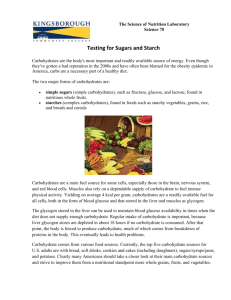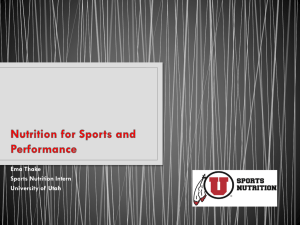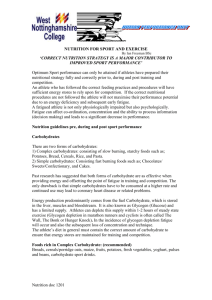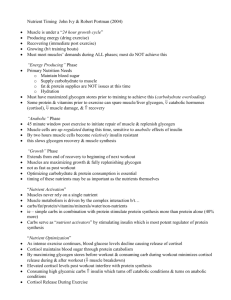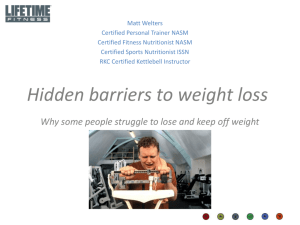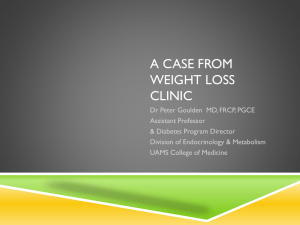Timing is Everything-What to eat and when: Nutrition
advertisement
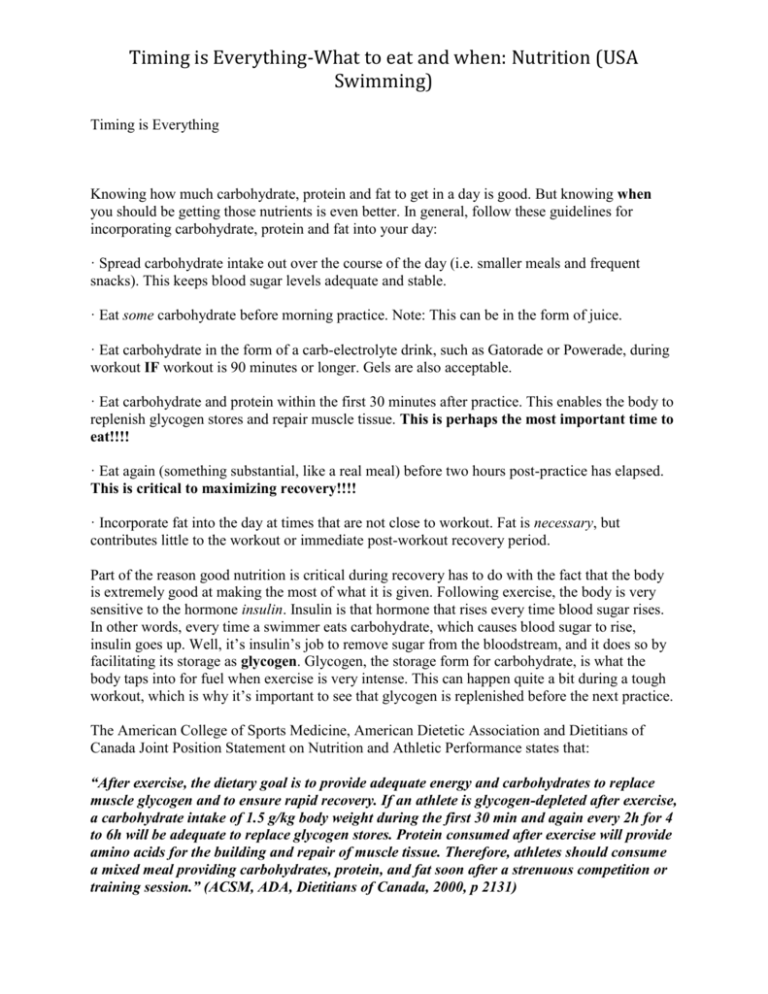
Timing is Everything-What to eat and when: Nutrition (USA Swimming) Timing is Everything Knowing how much carbohydrate, protein and fat to get in a day is good. But knowing when you should be getting those nutrients is even better. In general, follow these guidelines for incorporating carbohydrate, protein and fat into your day: · Spread carbohydrate intake out over the course of the day (i.e. smaller meals and frequent snacks). This keeps blood sugar levels adequate and stable. · Eat some carbohydrate before morning practice. Note: This can be in the form of juice. · Eat carbohydrate in the form of a carb-electrolyte drink, such as Gatorade or Powerade, during workout IF workout is 90 minutes or longer. Gels are also acceptable. · Eat carbohydrate and protein within the first 30 minutes after practice. This enables the body to replenish glycogen stores and repair muscle tissue. This is perhaps the most important time to eat!!!! · Eat again (something substantial, like a real meal) before two hours post-practice has elapsed. This is critical to maximizing recovery!!!! · Incorporate fat into the day at times that are not close to workout. Fat is necessary, but contributes little to the workout or immediate post-workout recovery period. Part of the reason good nutrition is critical during recovery has to do with the fact that the body is extremely good at making the most of what it is given. Following exercise, the body is very sensitive to the hormone insulin. Insulin is that hormone that rises every time blood sugar rises. In other words, every time a swimmer eats carbohydrate, which causes blood sugar to rise, insulin goes up. Well, it’s insulin’s job to remove sugar from the bloodstream, and it does so by facilitating its storage as glycogen. Glycogen, the storage form for carbohydrate, is what the body taps into for fuel when exercise is very intense. This can happen quite a bit during a tough workout, which is why it’s important to see that glycogen is replenished before the next practice. The American College of Sports Medicine, American Dietetic Association and Dietitians of Canada Joint Position Statement on Nutrition and Athletic Performance states that: “After exercise, the dietary goal is to provide adequate energy and carbohydrates to replace muscle glycogen and to ensure rapid recovery. If an athlete is glycogen-depleted after exercise, a carbohydrate intake of 1.5 g/kg body weight during the first 30 min and again every 2h for 4 to 6h will be adequate to replace glycogen stores. Protein consumed after exercise will provide amino acids for the building and repair of muscle tissue. Therefore, athletes should consume a mixed meal providing carbohydrates, protein, and fat soon after a strenuous competition or training session.” (ACSM, ADA, Dietitians of Canada, 2000, p 2131) Timing is Everything-What to eat and when: Nutrition (USA Swimming) In addition, research (van Loon et al, 2000) has implicated immediate post-exercise carbohydrate ingestion (1.2 g/kg/hr for 5 hrs) in the enhancement of glycogen re-synthesis. Body Weight in Carbohydrate Required (g) to meet lbs (kg) Intake of 1.2-1.5 g/kg 120 (54.5) 65-82 130 (59.1) 71-89 140 (63.6) 76-95 150 (68.2) 82-102 160 (72.7) 87-109 170 (77.3) 93-116 180 (81.8) 98-123 190 (86.4) 104-130 200 (90.9) 109-136 210 (95.5) 115-143 220 (100.0) 120-150
